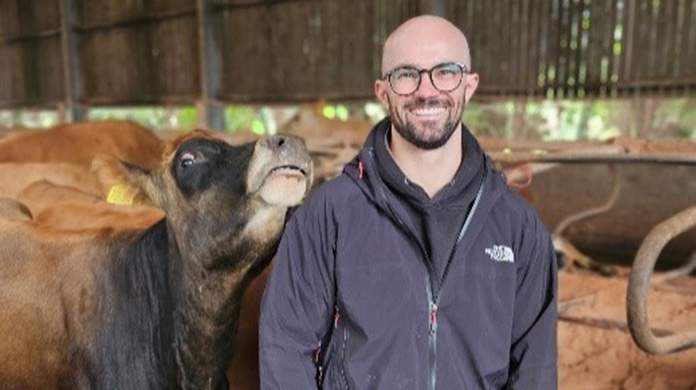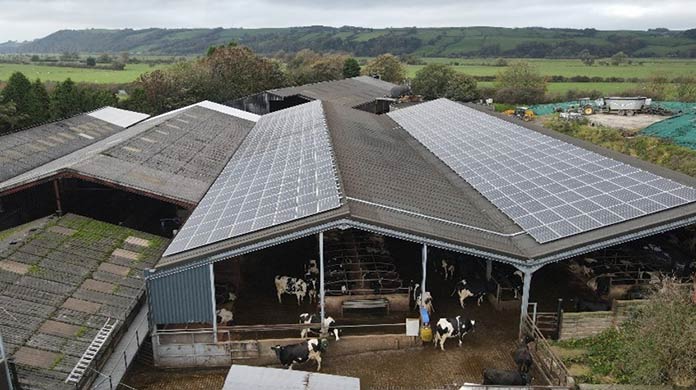- 2 minutes
- Article
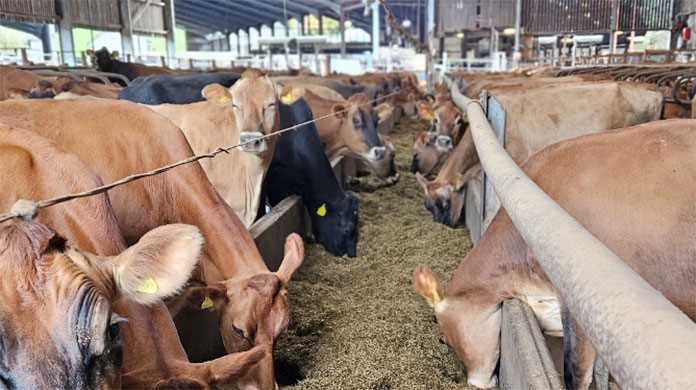
- Growing a business
- Seeking new opportunities
Approach to dairy farming provides added value sales and methane emission reductions
Novel feed additives are one solution that are being looked at to support methane reduction in ruminant livestock, one farm in the North West has trialled the approach to support their ambitions to produce a low carbon product, whilst also adopting solar on farm to produce renewable energy
Farm Facts
- Twice a day milking through a 24/48 herringbone parlour
- 450 cow herd
- 2/3rd Holstein, 1/3rd Danish Pedigree Jersey cows
- All year round calving system
- Supply coffee shops with Barista-quality milk
- Butterfat 4.5%, Protein 3.6%
- 182Ha, all-grass
Long term agricultural banking partner, HSBC, supports farm business growth
The Towers family have been farming in the North West of England for 14 generations, they’ve farmed at Brades Farm, a 182ha dairy farm, since the 1960s. Brades dairy farm is unique for several reasons, in terms of the milk they produce, how they produce it and how they distribute it.
Brades Farm, as we know it today, started following the Global Financial Crisis (GFC). John describes how they originally sold their milk locally, to doorstep milkman and local vendors. However, following the GFC people started to value lower prices over locality and quality. This dramatically impacted the farm business and forced the family to rethink their business proposition to survive.
The family decided to alter their business model and market their milk towards coffee shops, as the demand for barista-quality milk rose as the country came out of recession. In a bid to create quality barista milk, the team decided to introduce Jerseys into the herd following a trip to Denmark to get the best possible butterfat and protein levels and create the perfect milk for latte art, taste, and texture.
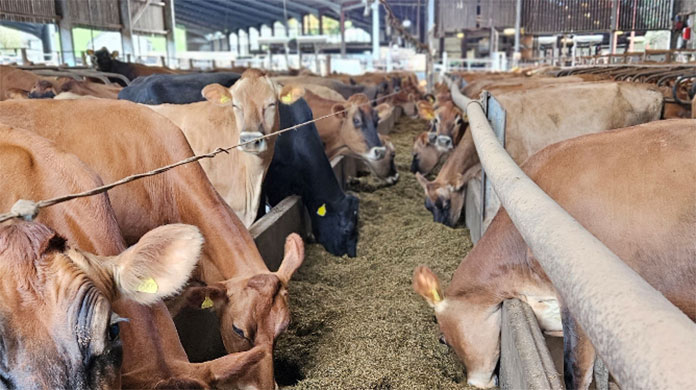
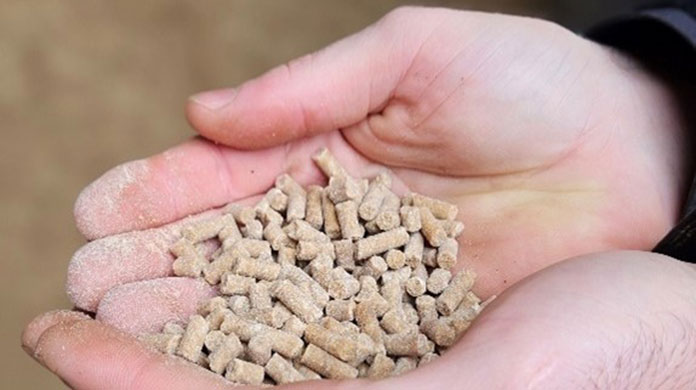
Ed is a Nuffield scholar who is currently studying Incentive Mechanisms for Environmental & Social Good, John is a lifelong farmer who has leveraged his deep understanding of the industry as well as welcoming new expertise from his children to create a successful dairy business that is adapting to a changing economy and government policy. Ed’s brother was also instrumental in the marketing, repositioning and sustainable transformation of Brades, including fostering the farm’s relationship with a feed company and implementing the methane reduction product as part of the cows diet, making this a true family-enterprise.
Brades Farm have been with HSBC for over 30 years, ‘we’ve always had managers who you could talk to, they listen and understand the business’ said John, going on to state that the relationship was categorised by loyalty and trust which is what he values in a banking partner. This was demonstrated during the early days of COVID, before the government offered furlough and bounce back loans HSBC agreed to extend their overdraft, to ensure that the business could pay suppliers and staff.
It’s not all about profit, or making money, I want to farm in the right way, and ensure we’re happy with the legacy we pass on
Innovation yields methane emission reduction from dairy herd
Sustainability is at the core of Brades’ purpose, through his Nuffield scholarship Ed has travelled to places including the USA, Canada, Brazil, Chile, and Japan and has been studying incentive mechanisms to encourage farmers to become more sustainable. For Brades Farm the solution Ed and his brother came across was an unassuming feed additive called Enterix, while it may not look like anything more than a feed pellet, it is made from garlic extract, and indeed, you smell it before you see it. Through a research project with SRUC, they were able to measure a reduction in their herd’s methane emissions by 30% on farm, furthermore, they were able to capture those carbon credits and sell them on the voluntary carbon market.
To progress their sustainability ambitions further they began exploring renewables. They worked with National Farmers Union (NFU) Energy on a feasibility report to understand more about solar panels and how they could benefit Brades Farm. Off the back of this HSBC has financed the installation of a 134kWp roof-mounted solar PV array through its Green SME Fund. This array has a payback period 7.5 years and a 20-year savings of £212k. This has reduced the farm’s reliance on the grid while aligning with Brades’ sustainability focus. The family are now exploring how they can reduce emissions further through utilising electric tractors, this will allow them to further utilise the solar energy they produce on farm.
Today we finance a number of industries that significantly contribute to greenhouse gas emissions. We have a strategy to help our customers to reduce their emissions and to reduce our own. For more information visit www.hsbc.com/sustainability.


